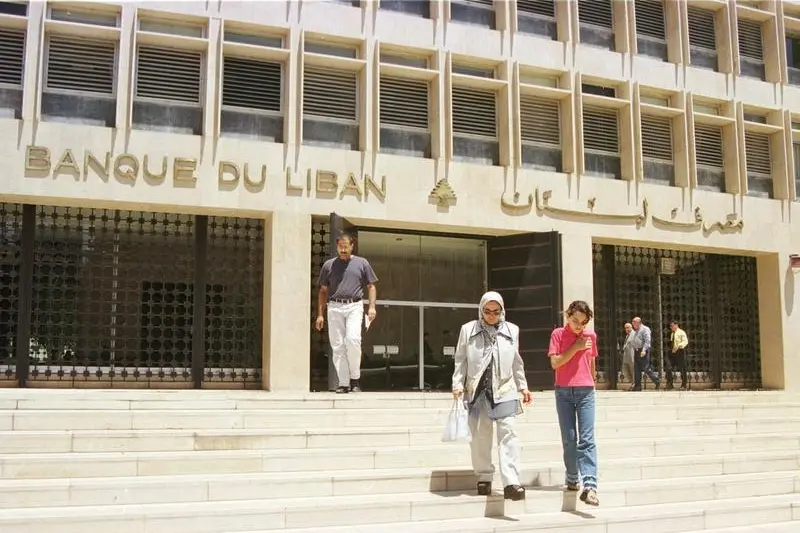PHOTO
BEIRUT: Lebanon's central bank said on Tuesday a planned $1.7 billion debt swap between it and the Ministry of Finance did not represent another round of the "financial engineering" it carried out in 2016 to boost foreign currency reserves.
Lebanon's Ministry of Finance is to issue $1.7 billion in Eurobonds to the central bank in exchange for an equivalent amount of T-bills, two ministry officials told Reuters on Monday.
Central Bank Governor Riad Salameh told Reuters last month the bank's foreign reserves were at a record high of around $44 billion, despite the war in neighbouring Syria that has battered Lebanon's economy and domestic political tensions.
Relaying a message from Salameh on Tuesday, a central bank official confirmed the swap to Reuters and said it "will not be an engineering similar to the one done in 2016".
Last year the central bank undertook what it and the International Monetary Fund have called "unconventional" financial engineering, to increase foreign exchange reserves, maintain the U.S. dollar peg and raise banks' capital reserves.
First the central bank exchanged some of its holdings of pound-denominated debt for dollar-denominated Lebanese Eurobonds from the Ministry of Finance, amounting to $2 billion.
Second, commercial banks were asked to transfer dollars to the central bank and in exchange were given the Eurobonds and newly issued certificates of deposit in dollars.
In addition, to encourage the commercial banks, the central bank bought pound-denominated bonds held on local banks' books from them for the full principal amount in addition to the interest that the banks would have made if they had held them to maturity, boosting their local currency reserves.
Economists have told Reuters there is no evidence yet that this debt swap would be followed by the steps seen in last year's engineering.
Nassib Ghobril, chief economist at Byblos Bank, said the planned $1.7 billion issue was part of measures taken by the Finance Ministry and central bank to improve the public debt profile, reduce debt servicing costs, and maintain debt stability.
Lebanon's political problems have prevented the government making necessary reforms, leaving the central bank to play the key role in maintaining economic stability.
(Reporting by Lisa Barrington; Editing by Gareth Jones) ((lisa.barrington@thomsonreuters.com; +961)(01954456;))
Lebanon's Ministry of Finance is to issue $1.7 billion in Eurobonds to the central bank in exchange for an equivalent amount of T-bills, two ministry officials told Reuters on Monday.
Central Bank Governor Riad Salameh told Reuters last month the bank's foreign reserves were at a record high of around $44 billion, despite the war in neighbouring Syria that has battered Lebanon's economy and domestic political tensions.
Relaying a message from Salameh on Tuesday, a central bank official confirmed the swap to Reuters and said it "will not be an engineering similar to the one done in 2016".
Last year the central bank undertook what it and the International Monetary Fund have called "unconventional" financial engineering, to increase foreign exchange reserves, maintain the U.S. dollar peg and raise banks' capital reserves.
First the central bank exchanged some of its holdings of pound-denominated debt for dollar-denominated Lebanese Eurobonds from the Ministry of Finance, amounting to $2 billion.
Second, commercial banks were asked to transfer dollars to the central bank and in exchange were given the Eurobonds and newly issued certificates of deposit in dollars.
In addition, to encourage the commercial banks, the central bank bought pound-denominated bonds held on local banks' books from them for the full principal amount in addition to the interest that the banks would have made if they had held them to maturity, boosting their local currency reserves.
Economists have told Reuters there is no evidence yet that this debt swap would be followed by the steps seen in last year's engineering.
Nassib Ghobril, chief economist at Byblos Bank, said the planned $1.7 billion issue was part of measures taken by the Finance Ministry and central bank to improve the public debt profile, reduce debt servicing costs, and maintain debt stability.
Lebanon's political problems have prevented the government making necessary reforms, leaving the central bank to play the key role in maintaining economic stability.
(Reporting by Lisa Barrington; Editing by Gareth Jones) ((lisa.barrington@thomsonreuters.com; +961)(01954456;))





















